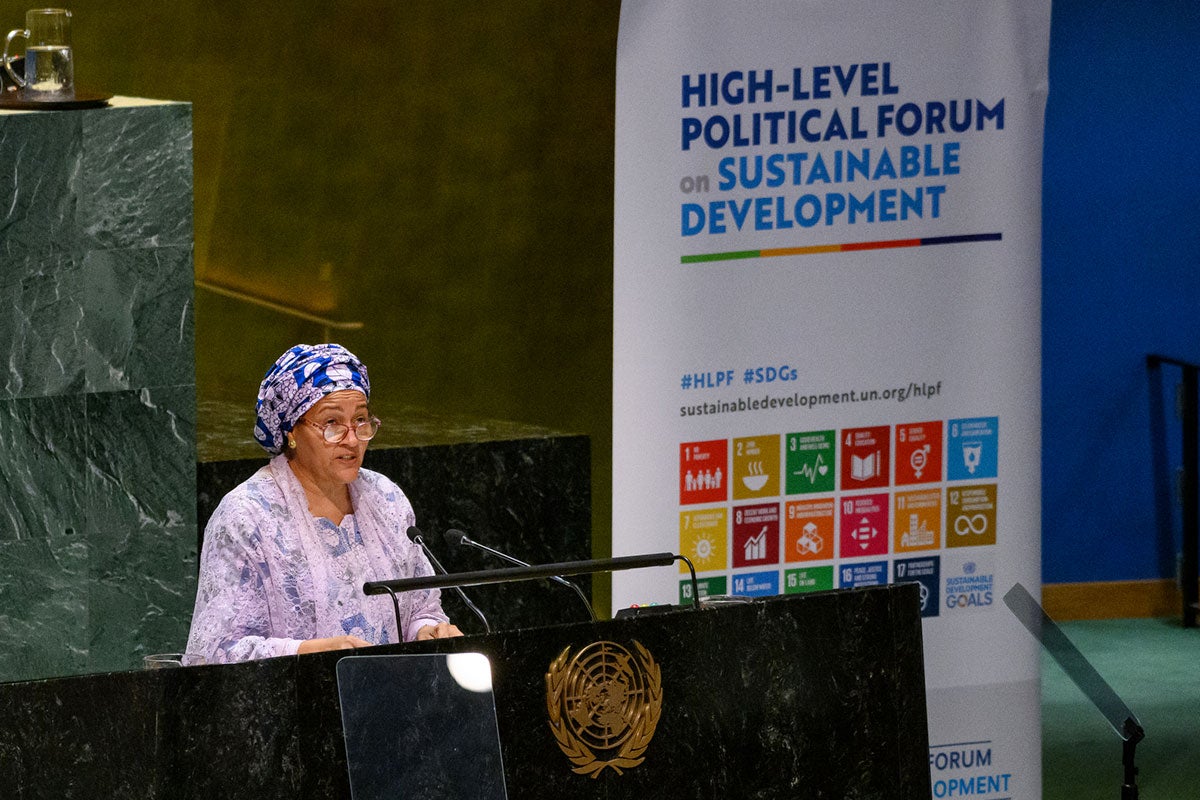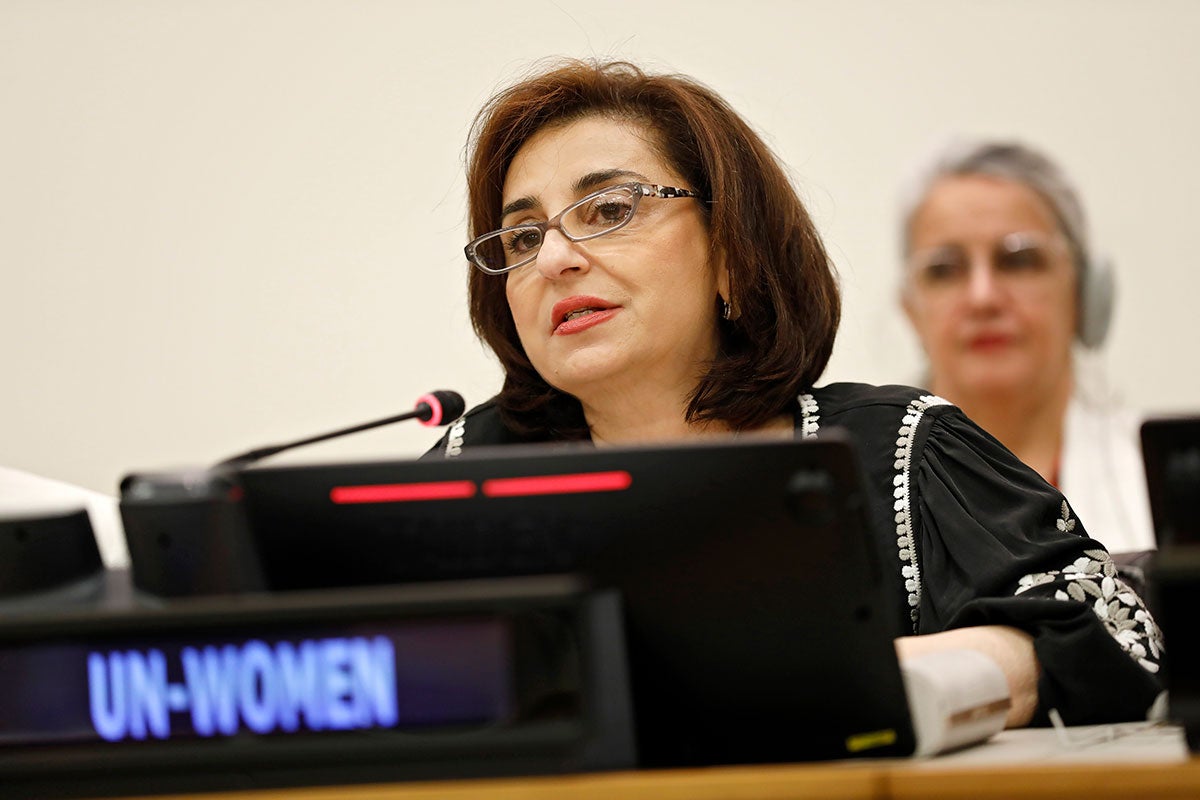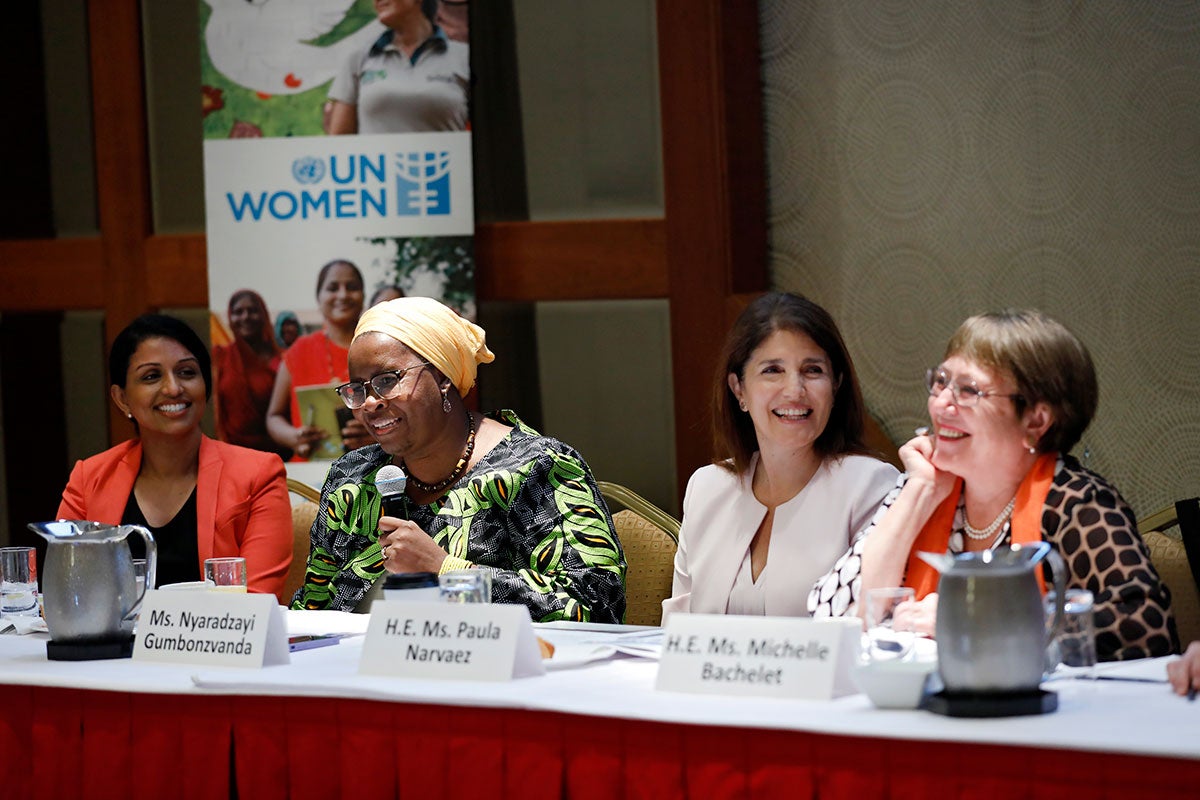Women and girls around the world are facing significant threats, from wars and conflicts to devastating climate change, widening inequalities, and pushback on their human rights and freedoms.
These threats were at the top of the agenda of the , the main UN platform to assess progress towards achieving the 2030 Agenda for Sustainable Development. This year’s forum opened on 8 July 2024 under the theme of “Reinforcing the 2030 Agenda and eradicating poverty in times of multiple crises: the effective delivery of sustainable, resilient, and innovative solutions.”

“Women and girls continue to face discrimination and disadvantage,” said Amina J. Mohammed, the United Nations Deputy Secretary General, during the forum.
“Policies to support the empowerment of women and youth, and the rights of children and their social and emotional well-being, have been implemented,” she added. “But we must keep our focus on women’s rights at every level in every constituency across all issues.”
Over the course of ten days, UN Member States, alongside civil society organizations, youth, the private sector, and international organizations, convened to review achievements, identify areas for action, and share best practices in catalyzing the implementation of the 2030 Agenda, in a context where only 17 per cent of targets are set to be realized at the current pace.
This year’s forum specifically focused on the Sustainable Development Goals (SDGs) aimed at ending poverty and hunger, taking action on the world’s climate, fostering partnerships, and building peace, justice, and strong institutions. Gender responsive policies and action are central to achieve those goals, as women and girls are disproportionately affected by poverty, hunger, climate change, conflicts, and wars, but more importantly recognized as agents of change.

Investing in women and girls and ensuring their equal access to income, productive and natural resources, as well as decision-making, leads to more prosperous economies, peaceful societies, and sustainable environments. By doing so, these investments catalyze progress towards the 2030 Agenda.
“Gender equity is a catalyst for economic growth and social cohesion,” said Paula Narváez, President of the United Nations Economic and Social Council (ECOSOC). “When women have equal access to education, to employment, to decision-making, societies prosper in a more inclusive and equitable way.”

UN Women also supported the launch of the first-ever at a high-level ECOSOC event in the margins of the forum. Under the leadership of Amina J. Mohammed, UN Women led the development of that policy guidance through an inter-agency effort with sister agencies UNDP, ILO, ECLAC and OHCHR.
The guidance, titled “Transforming Care Systems in the Context of the SDGs and Our Common Agenda,” underscores the importance of care work for social and economic wellbeing and the need to transform care systems to achieve sustainable development and gender equality. It provides the entire UN System with common definitions, principles, analytical framework, approaches and context-specific policy options on the care economy.
At the conclusion of the forum, UN Member States adopted a Ministerial Declaration committing to advancing progress on gender equality and the empowerment of women and girls across the 2030 Agenda. The commitments in that declaration include:
- Increasing investments to close the gender gap and strengthen support for institutions in relation to gender equality and the empowerment of women at the global, regional, and national levels.
- Eliminating all forms of discrimination and violence against women and girls, including through the engagement of men and boys.
- Commit to redoubling efforts to resolve or prevent conflict and to support post-conflict countries, including by ensuring that women have a role in peacebuilding and state-building.
- Recognizing the importance of the participation of women in all stages of peace processes, conflict prevention, conflict resolution, and peacebuilding to maintain and promote international peace and security.
- Recognizing the need to make special efforts to meet nutritional needs, especially of women, and recognize that infant and young child mortality can be reduced through the improved nutritional status of women of reproductive age.
- Agreeing that women and girls must enjoy equal access to quality education, economic resources and political participation as well as equal opportunities with men and boys for employment, leadership and decision-making at all levels.
Throughout the forum, including during the , Member States and participants also reiterated that gender equality is a catalyst to achieve the 2030 Agenda, and called for the integration of a gender perspective at all levels of policy planning and implementation, and across all SDGs.






